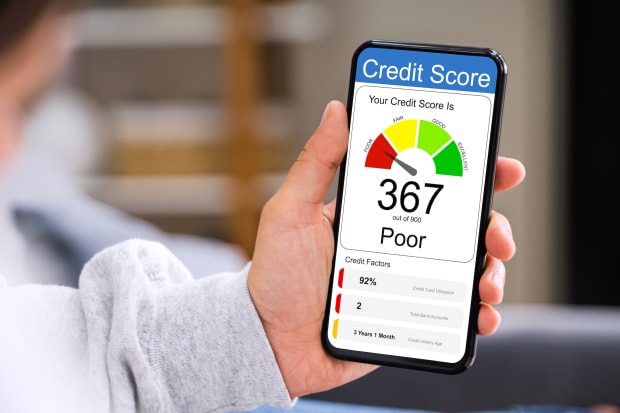Americans aren’t happy with the nation’s primary credit scoring agencies.
That after new data from the U.S Consumer Financial Protection Bureau noted consumer complaints about credit reports more than doubled from 2018 to 2021. The main culprit was “inaccurate information,” which topped the list of consumer credit reporting complaints.
In a stern note to Equifax (EFX), Experian , and TransUnion (TRU) this week, Washington, D.C.-based Consumer Reports called on credit bureaus “to ensure credit reports are accurate, including making credit reports permanently free for consumers so they can keep an eye out for mistakes.”
Under current federal law, U.S. consumers can access one free credit report from each major bureau annually through annualcreditreport.com, but will have to pay the credit bureaus for more frequent access beginning in 2023, Consumer Reports noted.
“Mistakes on credit reports are all too common and can have serious consequences, especially for those who are already struggling to make ends meet,” said Syed Ejaz, policy analyst for Consumer Reports. “Consumers should be able to check their credit reports at no charge whenever they want to ensure they are fair and accurate. No one should have to pay to access their own financial information.”

The System is the Problem
The fact that the consumer credit reporting process actually invites errors and omissions to occur isn’t helping, credit experts say.
“Each time debt is sold to a new collections agency, there's a new opportunity for debt to be misreported to a reporting agency,” said Chris Motola, financial and credit card analyst at MerchantMaverick.com, “In particular, Medical debt is somewhat notorious for being broken up and passed around in a way that can potentially compound errors.”
Specific problems range from identification errors, to balance errors, to account status errors. “Pretty much anything that can go wrong in a data entry and management sense can and does go wrong with credit reporting,” Motola said.
Credit reporting errors led to real-world problems for consumers.
“Earlier this year, Equifax again gave wrong credit scores to millions of Americans trying to get loans,” said Lyle Solomon, a principal attorney at Oak View Law Group. “Some errors were severe enough to affect the interest rates offered to consumers and, in some cases, even cause their applications to be turned down.”
The issue is only getting worse.
“The real reasons for the problem are the same as they were years ago: humongous data, speed over accuracy, and no incentives for providing accurate reports,” Solomon said. “Each major credit bureau has more than 200 million credit files, which adds up to more than a billion different pieces of information. And each month, these billions of pieces of information are updated.”
Taking Action
Considering the vital role credit reports play in the financial decisions consumers live by, taking direct action in eliminating those errors should be a big priority by those same consumers.
While Consumer Reports notes that the problem is with the credit reporting agencies, there are moves consumers can make to mitigate credit reporting errors. Consumer Reports advises taking these steps to fight back against credit report errors.
- Prepare dispute materials for each bureau: The three major credit bureaus – Experian, Equifax, and TransUnion – don’t communicate with one another, so it’s smart to contact each one. “Filing a dispute with each credit bureau, instead of the lender or bank, offers protections governing how quickly it must be handled,” Consumer Reports noted. “It also provides a legal pathway to sue the credit bureaus and creditors or collectors, if necessary.”
- Gather evidence: If you are filing a dispute about debt that’s reported incorrectly, include account statements or payment records. “Credit bureaus can dismiss claims without enough backup information as “frivolous.” And resubmitted claims can be denied if they’re considered similar to previous ones,” Consumer Reports stated.
- Create a paper trail: Write a letter explaining the problem. Avoid using standardized online forms provided by the credit bureaus, which might oversimplify your dispute by requiring you to choose among predetermined check boxes. “Plus, by submitting your dispute online, you could unwittingly waive your right to sue as an individual or in a class action,” the publication added.
- Send all materials by certified mail: Keep copies for yourself. This makes it easier to confirm that the credit bureaus follow lawful timelines. “Credit bureaus have five days to get the disputed information to the financial institution or debt collector that supplied the information,” Consumer reports stated. “If that company doesn’t investigate and respond to the dispute in time, the credit bureaus are legally required to delete the information.”
- If you lose your dispute, consider working with an experienced attorney: Consumers can sue a credit bureau or financial institution over credit report errors. Find an attorney through the National Association of Consumer Advocates at consumeradvocates.org







